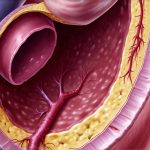Inflammation is often perceived as a negative process, but it’s fundamentally a vital part of our immune system’s response to injury or infection. It’s how our bodies protect themselves. However, when inflammation becomes chronic, meaning it persists over long periods even without an acute threat, it can contribute to a wide range of health problems – from autoimmune diseases and heart disease to diabetes and even certain types of cancer. Modern lifestyles, characterized by processed foods, chronic stress, and environmental toxins, frequently fuel this persistent low-grade inflammation that underlies many common conditions. Understanding the link between our gut health and systemic inflammation is increasingly recognized as crucial for overall wellbeing.
The gut, often referred to as our ‘second brain,’ isn’t simply responsible for digesting food. It’s a complex ecosystem teeming with trillions of microorganisms – bacteria, viruses, fungi, and others collectively known as the gut microbiome. This microbial community plays an enormous role in immune function, nutrient absorption, hormone regulation, and even mental health. When this delicate balance is disrupted (a condition called dysbiosis), it can lead to a “leaky gut,” increased intestinal permeability, and ultimately, systemic inflammation. A gut-healing diet aims to restore microbial balance, repair the gut lining, and reduce inflammatory responses within the body, potentially offering significant benefits for those struggling with chronic health issues linked to inflammation. Considering a diet reset can be a great starting point.
The Gut-Inflammation Connection: How It Works
The relationship between gut health and inflammation is bidirectional – meaning they influence each other constantly. A compromised gut microbiome can directly contribute to increased inflammation, while chronic inflammation further disrupts the gut ecosystem, creating a vicious cycle. This occurs through several mechanisms. First, when the intestinal barrier is weakened (leaky gut), undigested food particles, bacteria, and toxins can escape into the bloodstream. The immune system recognizes these as foreign invaders, triggering an inflammatory response. Second, certain types of gut bacteria produce metabolites that either promote or inhibit inflammation. An imbalance favoring pro-inflammatory bacteria exacerbates this process. Third, a healthy gut microbiome is essential for producing short-chain fatty acids (SCFAs) like butyrate, which have potent anti-inflammatory properties and help maintain the integrity of the gut lining.
Furthermore, the gut is a major site of immune activity – approximately 70-80% of our immune cells reside there. Dysbiosis can impair immune function, making us more susceptible to both infections and autoimmune reactions. The constant activation of the immune system due to leaky gut and microbial imbalances leads to chronic inflammation throughout the body. This isn’t merely about digestive symptoms; it impacts virtually every organ system. A healthy gut is therefore foundational for a robust immune response and reduced systemic inflammation.
Consider these key aspects: – A diverse microbiome generally correlates with better health outcomes. – SCFAs are vital for gut barrier function and immune regulation. – Leaky gut allows inflammatory triggers to enter the bloodstream. – Chronic inflammation can suppress immune function, creating further imbalances. If you suspect food sensitivities are playing a role, explore if gut healing could offer relief.
Dietary Strategies for Gut Healing & Inflammation Reduction
A gut-healing diet isn’t about restrictive elimination; it’s about nourishment and restoring balance. It emphasizes whole, unprocessed foods that support a healthy microbiome and reduce inflammatory triggers. Core principles include reducing sugar intake (refined sugars feed harmful bacteria), minimizing processed foods (often contain additives that disrupt the gut), incorporating fermented foods (sources of probiotics – beneficial bacteria) and prioritizing fiber-rich foods (prebiotics – food for beneficial bacteria). A focus on anti-inflammatory fats, such as omega-3 fatty acids found in fish and flaxseeds, is also crucial. Hydration is paramount, as water helps to flush out toxins and maintain a healthy gut environment.
Beyond these general guidelines, individual dietary needs vary significantly. Identifying personal food sensitivities or intolerances can be incredibly helpful. An elimination diet, under the guidance of a healthcare professional, may reveal foods that exacerbate inflammation. This involves temporarily removing potential triggers (like gluten, dairy, soy, corn) and then systematically reintroducing them to observe any reactions. It’s important not to self-diagnose or undertake restrictive diets without proper support. The goal is to identify what fuels your body best, not simply follow a trend. Lifestyle changes can also significantly impact gut health.
Addressing Leaky Gut Through Diet
A cornerstone of gut healing is addressing intestinal permeability – often referred to as “leaky gut.” Dietary interventions can play a significant role in repairing the gut lining and restoring its barrier function. – L-Glutamine: This amino acid provides fuel for the cells that make up the intestinal lining, helping to strengthen it. It’s found naturally in bone broth and can also be supplemented (consult with a healthcare professional before supplementing). – Collagen: Another building block of connective tissue, collagen supports gut barrier integrity. Bone broth is an excellent source, as are collagen supplements.
- Zinc: This mineral is essential for wound healing and plays a role in maintaining the intestinal lining. Good sources include oysters, beef, pumpkin seeds, and chickpeas. – Fiber: While counterintuitive given that some fiber can be irritating during acute gut flare-ups, adequate fiber intake supports SCFA production and contributes to overall gut health over time. Soluble fiber from sources like oats, apples, and beans is often better tolerated initially. A gradual increase in fiber intake is recommended. Repairing a leaky gut isn’t an overnight process; it requires consistent dietary changes and lifestyle modifications.
The Role of Probiotics & Prebiotics
The gut microbiome thrives on diversity. Probiotics are live microorganisms that, when consumed in adequate amounts, confer health benefits to the host. Fermented foods like yogurt (with live cultures), kefir, sauerkraut, kimchi, and kombucha are excellent sources of probiotics. Supplementation can also be considered, but it’s important to choose a high-quality probiotic with strains specifically suited for your needs. Prebiotics, on the other hand, are non-digestible fibers that serve as food for beneficial bacteria in the gut.
- Sources of prebiotics include: garlic, onions, leeks, asparagus, bananas, oats, and apples. Combining probiotics and prebiotics (a synbiotic approach) can enhance their effectiveness. It’s important to note that introducing probiotics too quickly or aggressively can sometimes cause digestive upset in individuals with sensitive guts. Start slowly and observe your body’s response. A thriving microbiome is a resilient microbiome, capable of resisting harmful bacteria and promoting overall health. Fasting may also play a role in resetting the gut.
Reducing Inflammatory Foods & Incorporating Anti-Inflammatory Options
Identifying and minimizing inflammatory foods is crucial for gut healing and reducing systemic inflammation. Common culprits include: – Processed foods: Often high in sugar, unhealthy fats, and additives. – Refined sugars: Fuel pro-inflammatory bacteria and contribute to leaky gut. – Artificial sweeteners: Can disrupt the microbiome. – Excessive alcohol: Irritates the gut lining and impairs immune function. – Conventional dairy: May trigger inflammation in sensitive individuals.
Conversely, incorporating anti-inflammatory foods can actively support gut health and reduce inflammation. – Omega-3 fatty acids: Found in fatty fish (salmon, mackerel), flaxseeds, chia seeds, and walnuts. – Turmeric: Contains curcumin, a powerful anti-inflammatory compound. – Ginger: Another potent anti-inflammatory spice. – Berries: Rich in antioxidants that combat inflammation. – Leafy green vegetables: Packed with nutrients and fiber. Focusing on whole, unprocessed foods is the cornerstone of an anti-inflammatory diet. Remember that dietary changes are most effective when combined with other healthy lifestyle habits such as stress management, regular exercise, and adequate sleep. Gut inflammation can be impacted by unexpected sources like caffeine.


















